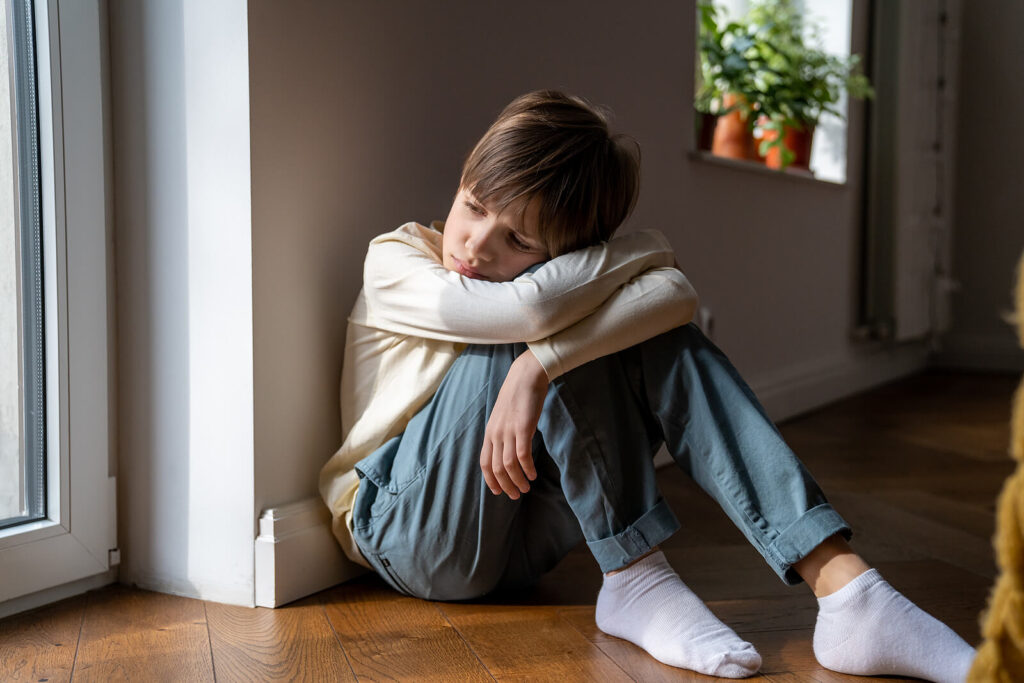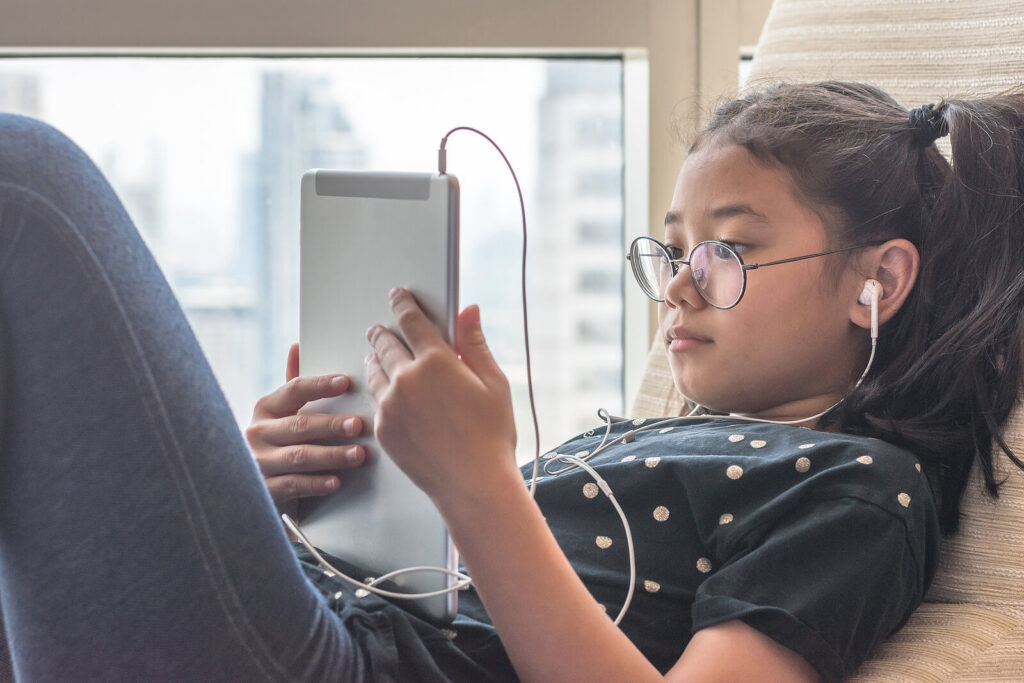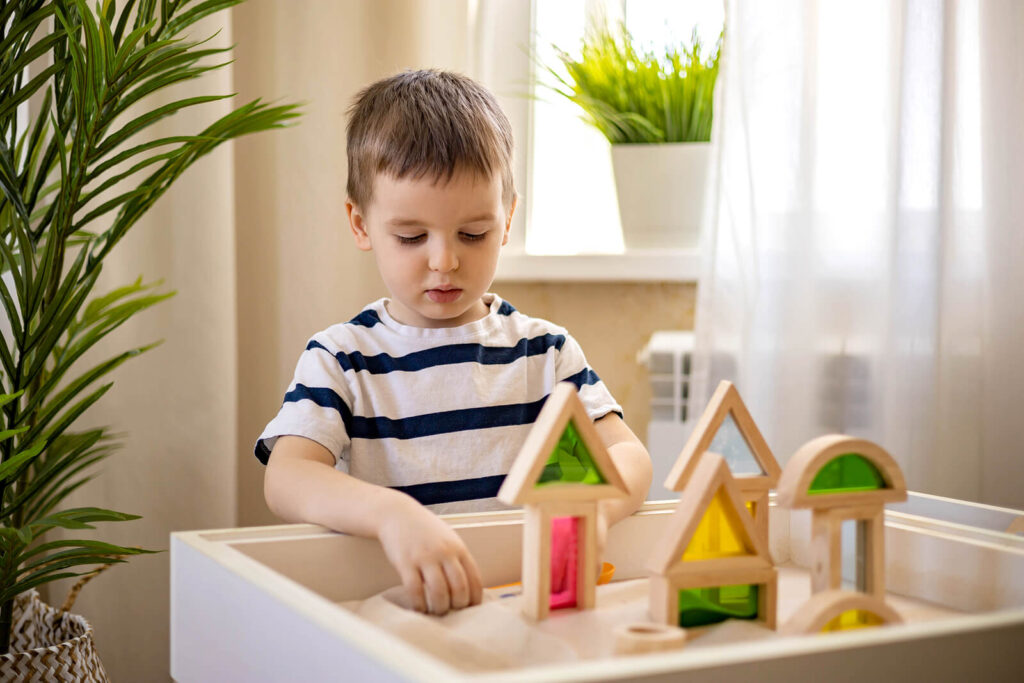Childhood anxiety is more than just occasional worry or nervousness—it can significantly affect a child’s emotional well-being, social interactions, and daily functioning. While feeling anxious is a normal part of development, excessive or persistent anxiety can interfere with a child’s ability to thrive. Understanding the causes and impacts of childhood anxiety is the first step toward supporting children in overcoming it.
What Causes Childhood Anxiety?
Childhood anxiety often arises from a combination of genetic, environmental, and psychological factors. Here are some common contributors:
Temperament/Personality
- The Highly Sensitive Child (HSC): Many times, highly sensitive children are picking up on a lot of stimulation from the environment. They will often become overwhelmed with this stimulation causing their brain to feel anxious. The HSC can have anxiety around food and be a picky eater, anxiety around something bad happening to their family, and they also may have anxiety around getting in trouble.
- The Gifted Child: The GT child is often literal in their thinking. Being so cognitively intelligent, their left brain often develops faster than their right brain (emotions). This leaves GT children with a lot of anxiety and rigidity around things changing, losing at a board game, being wrong, or perfectionistic behaviors in sports or school.
- Introverts: Children who are naturally shy or are more internal with their emotions tend to have higher amounts of anxiety since they store all of it inside. At WHCC when working on emotional expression through sand tray or art, an introverted child can start to find relief with their anxiety.

Environmental Influences
- Modeling: Our words as parents often become the words of our children. If a parent exhibits a lot of anxiety, they can unintentionally say things such as, “Don’t run or you will break your neck” or “You better hurry or you will be late for school and you will get in trouble” etc. causing anxiety in their children. At WHCC we work on compassionate mindfulness with parents helping them change anxiety-based language or behaviors.
- Trauma/Stress: Experiencing or witnessing traumatic events, such as accidents, loss, or abuse, can lead to anxiety. Also, when children have experienced a change in school, being bullied, or humiliating events can also lead to anxiety.
- School Pressure: Academic expectations, social dynamics, or bullying can be significant stressors for children.
- Technology/Overexposure: Many children are exposed to the online world. Although parents may block adult content on their devices, some content made for children is not actually helpful to their developing brains. Many times children will actually say they enjoy scarier movies and appear calm in the moment, but may have delayed effects at night in which they cannot sleep alone.
Cognitive and Behavioral Factors
- Negative Thinking Patterns: Children who tend to expect the worst or have low self-confidence are more prone to anxiety. At WHCC our child therapists help increase adaptive information in children, giving them a growth mindset and creating resiliency.
- Avoidance Behaviors: Avoiding feared situations reinforces anxiety, making it harder for children to overcome their fears. A compassionate playful exposure therapy can be extremely helpful in the therapy process. As a therapist at WHCC, I have personally seen relief from anxiety in less than a month when applying this technique.
Developmental and Social Challenges
- Major life changes, such as moving, changing schools, or the arrival of a sibling, can provoke anxiety.
- Difficulty in making friends or navigating social situations can amplify feelings of worry or inadequacy.

How Anxiety Manifests in Children
Childhood anxiety doesn’t always look the same as adult anxiety. It can be presented in various ways, including:
- Physical Symptoms: Stomachaches, headaches, fatigue, or difficulty sleeping.
- Behavioral Signs: Avoiding certain activities, clinging to caregivers, having frequent meltdowns, or a need for control.
- Emotional Indicators: Excessive worry, irritability, or an intense fear of specific situations or objects.
- Academic and Social Impacts: Difficulty concentrating in school or reluctance to engage in social activities.
The Impacts of Childhood Anxiety
Untreated anxiety can have short-term and long-term effects on a child’s life, influencing their emotional, social, and physical well-being.
Emotional and Mental Health
- Anxiety in children can be treated; however, if anxiety persists for a long period of time without treatment this may lead to Generalized Anxiety Disorder due to the long-term impact on the overactive nervous system of the brain. Persistent anxiety can lead to feelings of isolation, frustration, and sadness.
- Over time, anxiety may contribute to depression or other mental health challenges.
- When the brain is in a heightened state of anxiety, digestion and other parts of the body are impacted. Therefore, persistent anxiety has been linked to autoimmune disorders, digestive issues, etc.
Academic Performance
- Anxiety can impair focus and memory, leading to struggles with schoolwork or test performance. Many times, children who present as if they have ADHD are struggling with anxiety in school.
- Avoidance behaviors, such as avoiding homework, can hinder learning and development.
Social Relationships
- Anxious children may struggle to make or maintain friendships, feeling misunderstood or self-conscious.
- Avoidance of social situations can lead to loneliness and hinder the development of important interpersonal skills.
Physical Health
- Chronic anxiety can manifest as frequent illnesses, fatigue, or other stress-related physical symptoms.
- Poor sleep and eating habits may exacerbate health issues.
How to Support a Child with Anxiety
Parents, caregivers, and educators play a critical role in helping children manage anxiety. Here are some strategies:
Recognize and Validate Their Feelings
- Encourage children to talk about their worries without dismissing or minimizing them.
- Let them know it’s okay to feel anxious and that you’re there to help.
Teach Coping Skills
- Introduce relaxation techniques like deep breathing, progressive muscle relaxation, or mindfulness exercises.
- Help them challenge negative thoughts and replace them with positive or realistic ones.
Foster a Supportive Environment
- Maintain open communication and establish consistent routines.
- Provide encouragement and praise for efforts to face fears, no matter how small.
- Become mindful of your own anxiety-provoking language and model changing that language in front of your children.
- Decrease the use of screens or monitor things such as YouTube that can have adult content.
Seek Professional Help: Child Therapy in Katy
- Therapy, such as Cognitive Behavioral Therapy (CBT), Acceptance and Commitment Therapy (ACT), and Play Therapy can teach children to manage anxiety effectively.
- In some cases, a pediatrician or psychiatrist may recommend medication alongside therapy.

Final Thoughts as a Child Therapist
Childhood anxiety is a common yet highly treatable condition. By understanding its causes and impacts, families and caregivers can provide the support children need to navigate their fears and build resilience. Early intervention is crucial in preventing anxiety from escalating and interfering with a child’s long-term well-being.
If your child is struggling with anxiety, don’t hesitate to reach out to a qualified child therapist at West Houston Counseling Center (WHCC). Together, you can create a pathway toward confident, calm, and brighter days ahead.
Compassionate Child’s Therapy in Katy, TX to Help Build Confidence
At West Houston Counseling Center, we understand how challenging it can be to watch your child struggle with anxiety, and we’re here to help. Our team of experienced child therapists specializes in compassionate, personalized care designed to meet your child’s unique needs. Through evidence-based approaches like Cognitive Behavioral Therapy (CBT) and play therapy, as well as creative techniques like sand tray and art therapy, we help children build the skills and confidence they need to overcome anxiety and thrive. Follow the steps below to get started:
- Reach out to us here.
- Learn more about WHCC and how we can help your child.
- Get started with a child therapist in Katy, TX, and help your child thrive.
Explore Our Comprehensive Services in Katy, TX, and Beyond
At WHCC, we provide a range of services to support individuals and families beyond child therapy. Our teen therapy empowers adolescents to navigate life’s challenges with confidence. We offer adult therapy sessions focused on personal growth, mental health, and overall well-being. Parents can benefit from our tailored parent coaching sessions, designed to foster healthy and supportive relationships with their children. We also provide marriage and relationship counseling to strengthen connections and improve communication between partners. Our trauma therapy helps individuals heal from difficult past experiences, while LENS neurofeedback offers an innovative solution for managing anxiety, ADHD, and other conditions.

